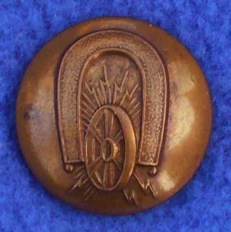Wolverhampton District Electric Tramways
Owner Wolverhampton District Electric Tramways Limited (a subsidiary of the British Electric Traction Company)
Operator (lessee) Dudley, Stourbridge and District Electric Traction Company - a BETCo subsidiary
Took over (ownership) 1st February 1901 (lines of the former Wolverhampton Tramways Company outside the Wolverhampton municipal boundary, which were owned by BETCo, and which were being reconstructed for electric working)
Took over (operation) January/February 1902 - Dudley to Fighting Cocks services, previously worked by the DS&ETCo
Ownership transferred 1st July 1904 (to Birmingham and Midland Tramways Limited - a BETCo subsidiary) and administered via the newly formed Birmingham and Midland Tramways Joint Committee
Parent company name changed 13th August 1912 (from B&MTL to the Birmingham District Power and Traction Company)
Took over (operation) 1st April 1924 (South Staffordshire Tramways [Lessee] Company - a BETCo subsidiary) - Darlaston to Wednesbury, Wednesbury to Walsall, and Darlaston to Walsall services
Taken over (operation) 15th August 1925 (Wolverhampton Corporation) - Fighting Cocks to Dudley line
Taken over (operation) 1st October 1925 (Walsall Corporation) - Willenhall Crescent Road services to Willenhall Market Place and Darlaston, under a three-year lease
Taken over 9th August 1926 (Wolverhampton Corporation) - Deans Rd to Willenhall line
Taken over (ownership) circa June 1928 (Walsall Corporation) - Willenhall Crescent Road to Willenhall Market Place section of the Willenhall to Darlaston line
Taken over 27th August 1928 (Wolverhampton Corporation) - Stow Heath Lane to Bilston line
Ceased tramway operation 31st August 1928
Taken over (operation) 1st September 1928 (Wolverhampton Corporation) - Fighting Cocks to Bilston; Willenhall, Bilston to Darlaston; and Bilston to Bradley lines and services
Taken over (operation) 1st September 1928 (DS&DETCo - the only BETCo-owned tramway-operating company left in the area) - Darlaston to Wednesbury, Wednesbury to Walsall, and Darlaston to Walsall services
Company wound up 15th December 1930
Length 14.67 miles
Gauge 3ft 6ins; 4ft 8½ins
Button description Wheel, magnet and electrical flashes
Materials known Brass; chrome; black horn
Button Line reference [113/16]
Comment BETCo had a common approach to all its subsidiaries, so staff working the new electric services would have worn the standard BETCo 'Magnet and Wheel' button.
The history of BETCo-owned tramways in the Black Country is a complex one. The BETCo essentially started by acquiring an interest in several local tramways (Dudley and Wolverhampton Tramways; Dudley and Stourbridge Steam Tramways; and South Staffordshire Tramways) in 1897, then rapidly expanded its influence by gaining control of several other tramways. On the 1st July 1904, the BETCo transferred its shares in these companies to Birmingham and Midland Tramways Limited, a company which it directly controlled. The six tramways (later seven) were thereafter managed as a single concern by the Birmingham and Midland Tramways Joint Committee (from October 1915, the Birmingham and Midland Joint Committee of Electricity, Tramways and Motor Omnibus Undertakings), which comprised board members from the individual concerns:
- Birmingham and Midland Tramways (via the Birmingham and Midland Tramways Limited)
- City of Birmingham Tramways (via the City of Birmingham Tramways Company) - until 1912
- Dudley, Stourbridge and District Electric Tramways (via the Dudley, Stourbridge and District Electric Traction Company)
- Kidderminster and Stourport Electric Tramway (via Kidderminster and District Electric Light and Traction Company) - from October 1915
- Kinver Light Railway (owned by the DS&DETCo)
- South Staffordshire Tramways (primarily via the South Staffordshire Tramways [Lessee] Company)
- Wolverhampton District Electric Tramways (via Wolverhampton District Electric Tramways Limited)
The B&MTJC worked in partnership with many local authorities, some of which owned the tramway lines within their municipal boundaries, but leased them to one of the B&MTJC's constituent tramway companies. Many of these authorities harboured transport ambitions of their own, which were ultimately to be the downfall of the B&MTJC's network, the last of its services being taken over by Walsall Corporation in 1930.
